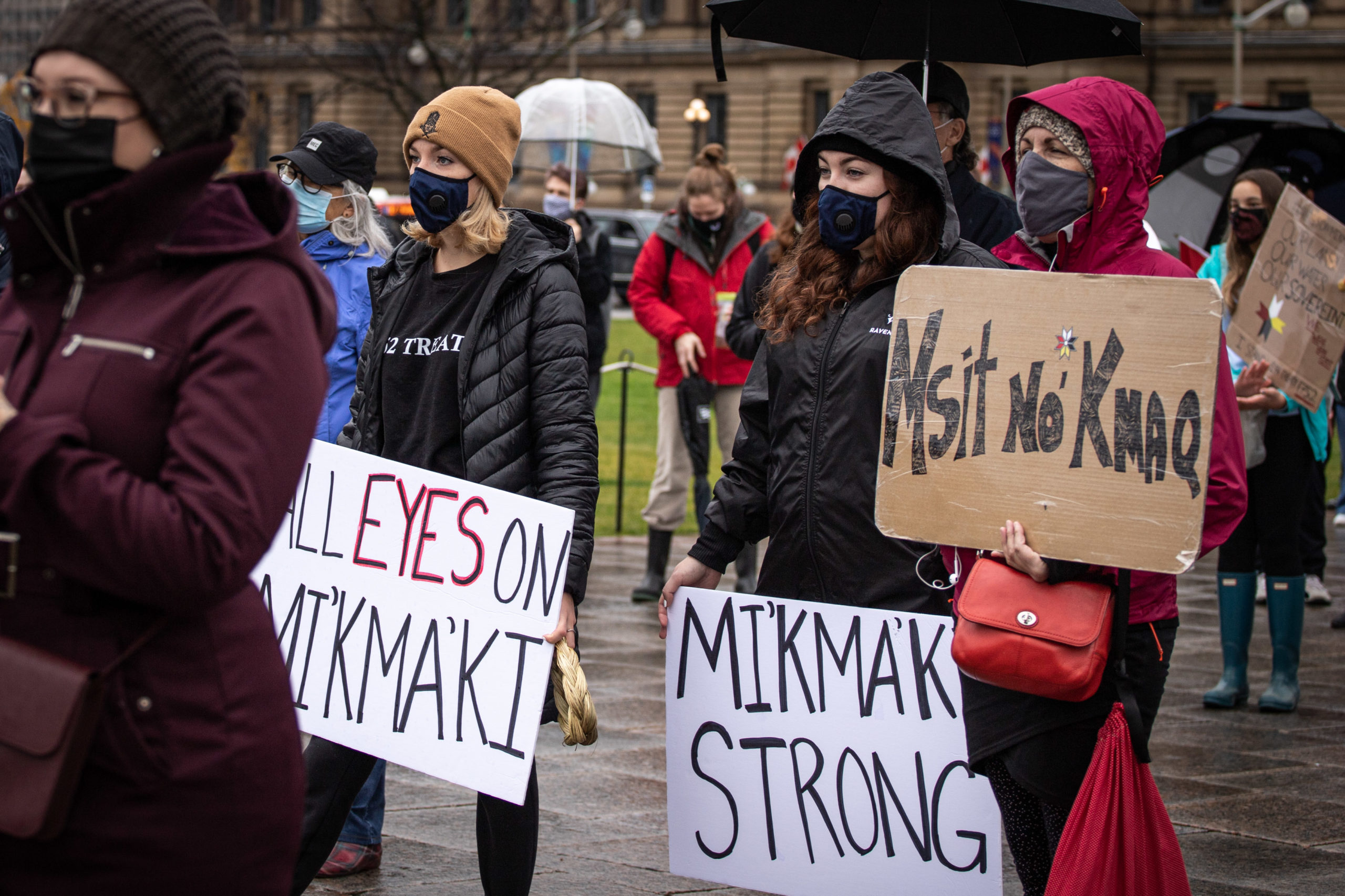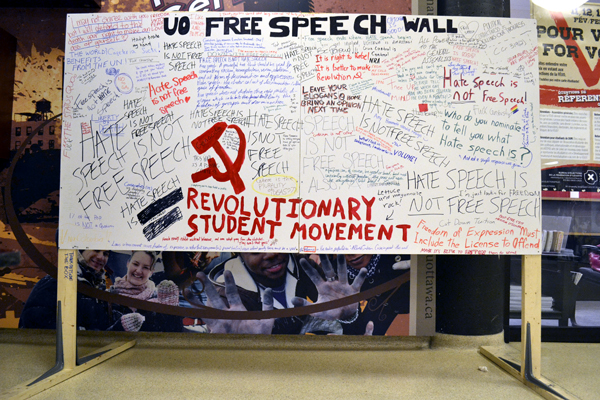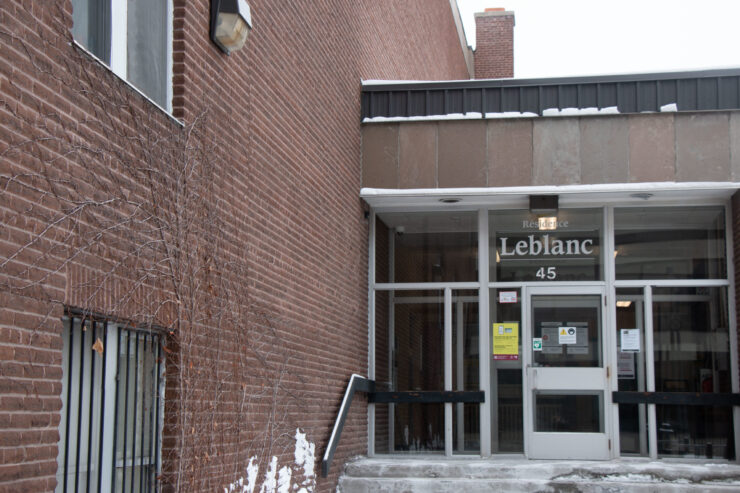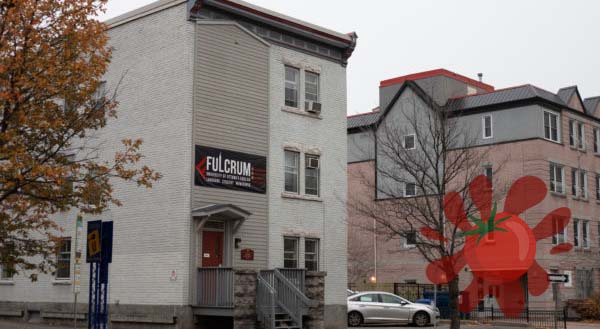Protesters gathered at Parliament Hill on Wednesday afternoon to show support and call out systemic racism
Approximately 100 demonstrators gathered at Parliament Hill on Oct. 21 to show solidarity with the Mi’kmaq fishers in Nova Scotia.
“What they’re doing over in my land is egregious,” said Janelle Niles in the opening speech. “I cannot believe we have to stand here today, 21 years after Donald Marshall Jr. fought for us.”
The protest was organized by Indigenous activists Amanda Fox and Niles, rallying protesters from Facebook in only a day.
“The goal of the protest was to let Ottawa, Canada, know that we’re still here, we’re angry, and we need something done pronto,” said Niles, who is a Sipekne’katik Mi’kmaq comedian and producer. “They have no right to determine what our moderate livelihood is, we want to continue fishing unhindered.”
Despite the Peace and Friendship Treaty of 1752 outlining the legal right for Indigenous fishers to fish during off-seasons, there have been tensions between Indigenous and non-Indigenous fishers for centuries.
“It’s their sovereignty, it’s their traditional right to fish. And they do it in a respectful way, a very cultural and spiritual way,” said Alejandra Gesegeweigloqwej Metallic-Janvier, who is Mi’kmaq and a second-year Carleton student in neuroscience and mental health.
“They really do it for the land and for the benefits of the fish, and they look at every part of the fish, whereas the traditional commercial fishermen they just do it for sport and for profits. That’s just not the way of our people and if we continue down this road, we won’t have any fish left to fish.”
Since opening their own fishery at the beginning of September, the fishers of Sipekne’katik First Nation have been the victims of racially-motivated harassment, including losing an estimated 150-200 lobster traps and having a lobster pound destroyed in a fire.
The demonstration consisted of a speech by Niles, drumming, and a poem by one of the attendees, E.N. Hill.
“This isn’t the first time well meaning white folks have witnessed disproportionate suffering among non-whites and yet you’re still often surprised. This isn’t the first time capitalists have exploited and profited off of the sick, the disabled, the elderly and poor people’s pain,” he recited.
Richie Allen, a historical researcher at Libraries and Archives Canada, believes that the federal government should end the criminal activity against the Mi’kmaq fishers and address systemic racism.
“[The government] should be figuring out what to do,” she said. “These are treaties, and these are federal responsibilities. The RCMP is a federal responsibility and [Prime Minister] Trudeau should go [to Nova Scotia].”
Niles believes that education is one of the most important things the federal government could do, citing a lack of youth knowledge regarding Indigenous constitutional and treaty rights.
“I think it’s as simple as acknowledging that they exist, and upholding them and understanding that as Indigenous, this is how we know it to be. As it was defined with our people when it was made, it should be defined with us today.”





